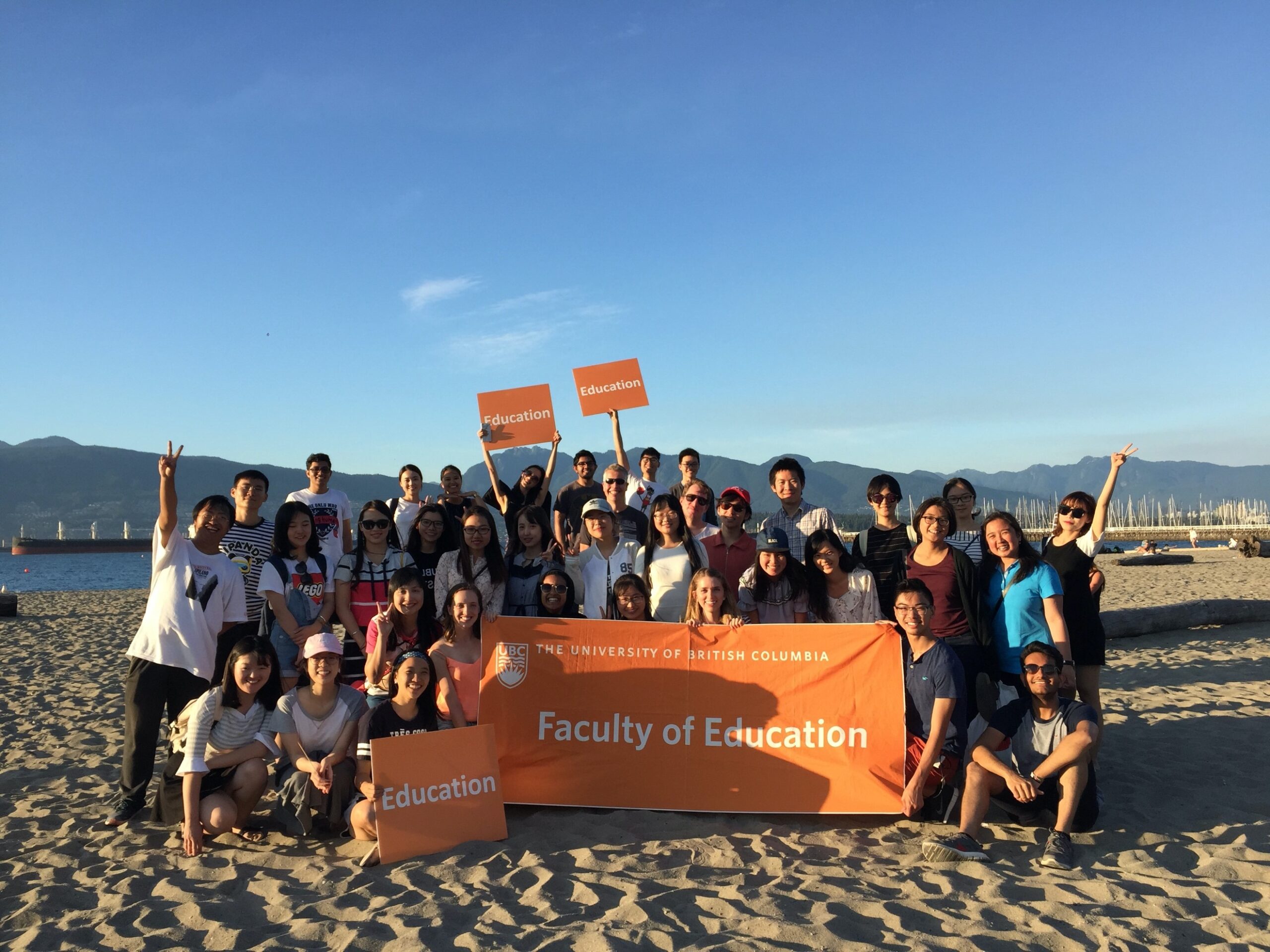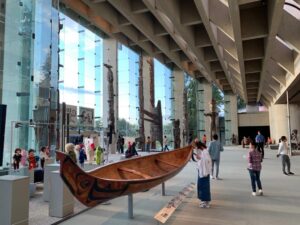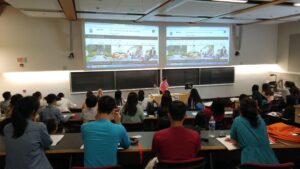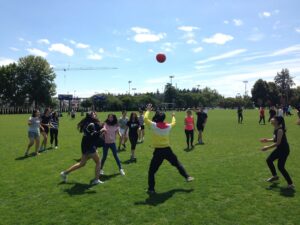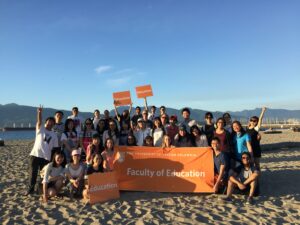The Faculty of Education at the University of British Columbia, top-ranked in Canada and 9th in the world, has served the international education community through leadership in research, teaching, and service for over 50 years.
What you might expect/course format
The UBC Vancouver Summer Program in the Faculty of Education is a four-week program developed for international undergraduate students. The courses deliver academic rigour through pedagogies selected to optimize learning of students with diverse cultural and linguistic backgrounds. The program provides the opportunity for students to learn about a wide range of education topics in a Canadian context, while also exploring Canadian society and culture through engaging classes, field trips, and social activities. It is a truly holistic learning experience!
- Each package consists of two courses (approximately 39 hours of class time per course)
- Classes are interactive and often include discussions, group work, and field trips
- Evaluation may include assignments, group projects, papers, and presentations
- Out-of-the-classroom activities extend learning opportunities and help build international networks of colleagues and friends
- Students’ home universities can receive detailed information about the courses and records of students’ achievement and may grant academic credit for the courses at their own discretion
June 2025 Course Packages
Designing High Quality Programs in Early Childhood Settings
This course explores the concept of quality and its relationship with Early Childhood Education and Care (ECEC). It focuses on those particular aspects that can transform Early Childhood Settings into highly effective programs with long-term effects and high returns on investment. Students will learn about, discuss, and clarify some of the theories, programs, and approaches that have shaped the field of Early Childhood Education, including child development theory, developmental neurosciences and the holistic and relational nature of learning in the early years. This course focuses on current issues around young children’s rights, socio-emotional development, school readiness, second language acquisition, identity formation, and parents’ engagement. It highlights the idea that young children’s innate capacity to learn and teachers’ responses to children’s inquiries provide the foundation for the development of high-quality early learning experiences for young children, and impact the type of programming that is created.
Creating Environments to Support Learning in Early Childhood Settings
This course introduces students to the significant role that designing stimulating and nurturing early childhood classroom environments plays in children’s learning and in supporting all aspects of their development and growth. Recognizing that early childhood education is constructed within historical, sociocultural, political, and theoretical contexts, this course examines the ways and means in which high-quality learning environments engage with all of these contexts. Additionally, it discusses the considerations that socio cultural contexts and socio-emotional relationships have on creating learning spaces by taking into account philosophies of childhood, play, and learning.
Prerequisites: No prerequisites
Minors (students aged under 19 at the start of the program): Not Accepted
For more information
For VSP Education-specific questions, email Fang Wang, Director of International Initiatives, at fang.wang@ubc.ca.
Student testimonials
– Liyan, VSP Education Student
– Pablo, VSP Education Student
